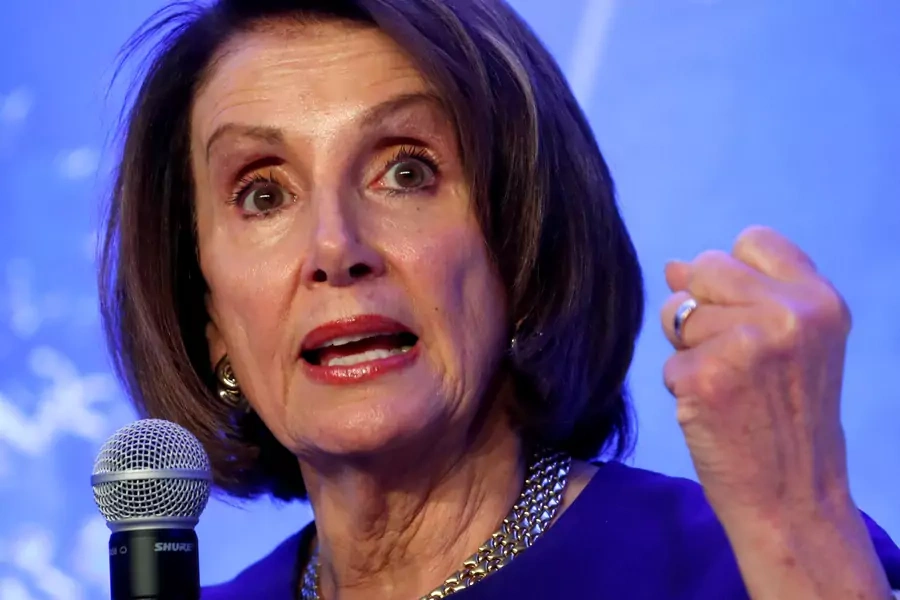Cyber Week in Review: May 31, 2019

Here is a quick round-up of this week’s technology headlines and related stories you may have missed:
Pelosi Takes on Facebook: Facebook has come under fire again for the handling of misinformation on its platform. Altered videos of Speaker of the House Nancy Pelosi were circulated online last week, shared on Facebook, YouTube, and Twitter. One of the videos slows down the speech of Pelosi, making the speaker appear intoxicated. YouTube has since removed the video, claiming the content violates its policies. Pelosi criticized Facebook, which chose to keep the video up but mark it as doctored, for “lying to the public,” stating the company’s refusal to take down knowingly false information demonstrates Facebook was a “willing enabler” of Russian interference in the 2016 elections. This comes just a week after Facebook reported its efforts to disable billions of fake accounts, including fake accounts associated with Iran-linked influence campaigns. Facebook’s struggle to address disinformation has been met with calls to break up the company and change its leadership. On Thursday, Facebook shareholders voted on a proposal to divide the dual chairman and CEO role of Mark Zuckerberg. The proposal, backed by seven state treasurers, failed—an expected outcome given Zuckerberg’s 57.7 percent voting power.
More on:
New Global Pact on AI: Forty-two countries adopted the Organization of Economic Co-Operation and Development (OECD) new principles on artificial intelligence (AI). The agreement, signed by OECD members such as the United States, UK, and Japan along with non-members like Argentina, Brazil, and Romania, is the first global governance agreement on artificial intelligence. The “value-based principles” are non-binding but attempt to create norms to promote responsible development of AI that is “trustworthy and respects human rights and democratic values.” China did not sign the agreement, despite its strong domestic push for AI development.
The Ghost Protocol: In an open letter to the Government Communications Headquarters (GCHQ), over forty signatories criticized the UK security agency’s proposal to access encrypted messages. The plan, also known as the “ghost protocol,” would allow law enforcement to access end-to-end encrypted messages by requiring companies to forward all communications to a third participant as well as deliver the original messages to the intended recipient. While UK cybersecurity officials claim this tool would only be used in exceptional circumstances, in the letter civil rights groups, firms, and tech experts argue the proposal would violate human rights and undermine users’ trust of messaging systems. Signatories include Google, Apple, Microsoft, and WhatsApp. In response, UK National Cyber Security Centre’s technical director Ian Levy stressed the proposal is a hypothetical “starting point for discussion.”
Huawei Takes A Stand, Again: On Tuesday, Huawei filed a legal motion to have the Trump administration’s ban of its equipment declared unconstitutional. Huawei describes the sanction as a “trial by legislature” and an attack on human rights. The motion is attached to Huawei’s lawsuit against the U.S. government, which it filed in March, and is part of the larger U.S.-China conflict over Beijing’s industrial and tech policies. The United States has aggressively pushed against Huawei’s lead in the race to 5G, barring the use of its equipment by the U.S. government and U.S. telecoms. Most recently, the White House announced its plan to advance U.S. deployment of 5G technology.
Google To Turn Over New Leaf? : Google announced new policies on Thursday to ensure Chrome extension developers protect user privacy. Effective this summer, Google will require extension developers only request the minimum amount of user data necessary to function. The company also expanded the type of extension developers now required to post their privacy policies to include extensions that deal with personal communications, among others. The changes are a part of Google’s Project Strobe, an initiative launched last year to address how third-party developers access user data through Google accounts and Android devices. Despite Google’s push to make extensions more secure, the company is still facing criticism over data privacy. Last week, Irish data protection commissioner, opened an investigation into Google over its ad exchange which has been accused of allowing hundreds of potential advertisers to access user data.
More on:
 Online Store
Online Store